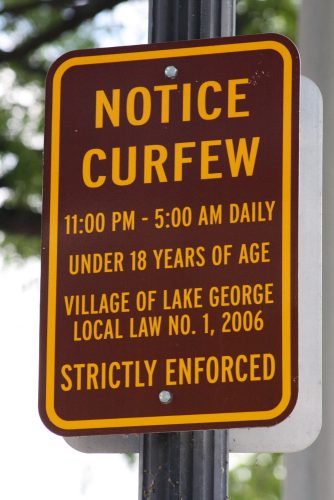If you were ever lost for words to explain to your children why they should care about curfew, then do not worry we have been in the same boat and are here for you. It is vital that you never tell your kids, ‘because I said so.’ as a justification for any of your actions. While it might be a quick answer to the now, your child will lack the proper knowledge of why to not do what you are trying to push them away from. Imagine what will happen in the teenage years when they try to look for reasons to not stay out past curfew will it be just because you say so? If this was new information to you, then read on for some other important parental information.
“Curfews are an important tool in helping to manage a teen and keep them away from risky situations,” said Michael Dennis, PhD. “They are at risk for being able to use and/or using to the point of getting in a dangerous situation in terms of sexual risk, being in a car with a driver being intoxicated, getting into a fight, and a variety of other things. Therefore, it’s important for parents to come up with clear boundaries about when kids need to be home and to make sure that those kids follow those boundaries.”
Aside from typical home curfews, Katelyn Alcamo, LCMFT, also suggests setting a technology curfew for younger kids. She said, “This means all devices should be stored with the parents after a certain time of night. This is the time when most kids get into trouble with their social media use, as it is often unsupervised. There is no one available to support them if something negative happens.”

Choosing The Right Time
Now the best time to tell your kid about a curfew might come to a surprise to most parents, but it is now. The rumours that there is a certain age to start talking about curfew is just that rumor. What is the right time to start teaching responsibility? What is the right time to not worry about your child? When is the right time for someone to snatch your kids off of the streets? While it is impossible to keep your child a hundred percent safe (unless you are fortunate enough to afford to homeschool), it is possible to mitigate. The timing is not what you need to worry about but rather the wording.
“The matter of curfew raises both specific and symbolic issues. Specifically, curfew has to do with how late an adolescent is allowed to stay out by parents who set a time she has to be home. Symbolically, curfew has to do with parents setting limits on the adolescent’s personal and social freedom at an older age,” wrote Carl E Pickhardt, PhD.
Stern But Fair
When you are telling your kid about curfew, it is important that establish a stern but fair tone and nothing on the far end. Coming off as too stern then you child might feel rebellious in later years and miss curfew just to spite you when it is just notwithstanding their safety. However, if you are too lax, then the seriousness of the curfew will fall on deft ears which are just as terrible. Read on if you are having trouble with the wording.

Explain
Now to sound like you are setting these new timelines for their safety rather than abitarily is to speak to your child like an adult. The worst thing that you talk to them below their intelligence as this will be a conversation that they are going to need to remember for years. Do not spare any of the gory details either as you tell them everything from curfew police to the drunks to the child molesters that walk the streets. It is also important to teach your kid that not all strangers all evil. Just the ones that are overly friendly at first or seem gruff from appearance. There might not be a way to tell your kid what a child molester looks like but you can tell them what a decent stranger looks like but under no circumstances should they follow or take anything from a said person.

Reward
The last and least important thing that you need to tell your kid after all else has been mentioned is that they will not go unrewarded. This site has an excellent article on creating a reward system but here is an overview of reward systems that you can do depending on your budget:
*Tight Budget Reward System
Have your child write a top ten of things that they want for Christmas. Tell them that you will mark out and a checkmark by their behaviour to the curfew rules.
*Moderate Budget Reward System
Use your knowledge of your kid to your advantage as you give them their most/least favourite food in accordance to their behaviour. If they are good for prolonged periods of time, the rare non-holiday gift is beneficial.
*High Budget Reward System
Plainly start an allowance for your child. Something you wish your parents had done huh?
